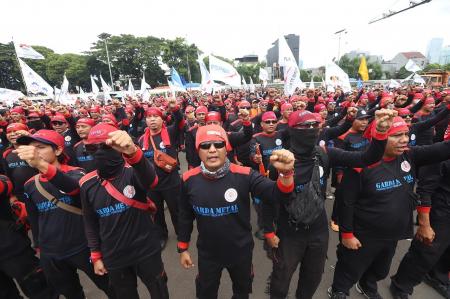The fate of workers in East Java has come under scrutiny after a report revealed a nationwide spike in layoff cases. Records show that 2,246 workers in East Java were laid off between January and June 2025.
This figure is part of a national total of 42,385 layoffs, marking a significant 32.1% increase compared to the same period in 2024, which recorded only 32,064 cases. Ironically, this surge occurred amid government promises to curb layoffs and maintain labor stability.
According to the official report, Central Java recorded the highest number of layoffs with 10,995 cases, followed by West Java (9,494), Banten (4,267), DKI Jakarta (2,821), and East Java in fifth place with 2,246 affected workers.
Here is the detailed breakdown of layoffs in East Java during the first half of 2025:
– January: 452 people
– February: 745 people
– March: 291 people
– April: 302 people
– May: 401 people
– June: 55 people
This situation highlights major challenges in East Java’s labor sector, particularly in labor-intensive industries.
In response, East Java Governor Khofifah Indar Parawansa announced a strategic initiative. The provincial government will provide certified job training to 10,000 laid-off workers to expand their access to new employment opportunities.
“This training will help unemployed workers regain their footing, acquire new skills, and support their families,” said Khofifah.
She added that the training program has been budgeted for and will be coordinated with labor unions to ensure effective and equitable implementation.
In addition to job training, the provincial government has introduced affirmative policies in education. Children of laid-off workers will receive priority quotas for public high school/vocational school enrollment, as well as special scholarships for those attending private institutions.
This measure aims to prevent the cascading effects of the labor crisis on workers’ children’s education.
The program is seen as a concrete step in mitigating the social impact of mass layoffs. If implemented effectively, East Java could become a model province for addressing labor crises in a humane and productive manner.






